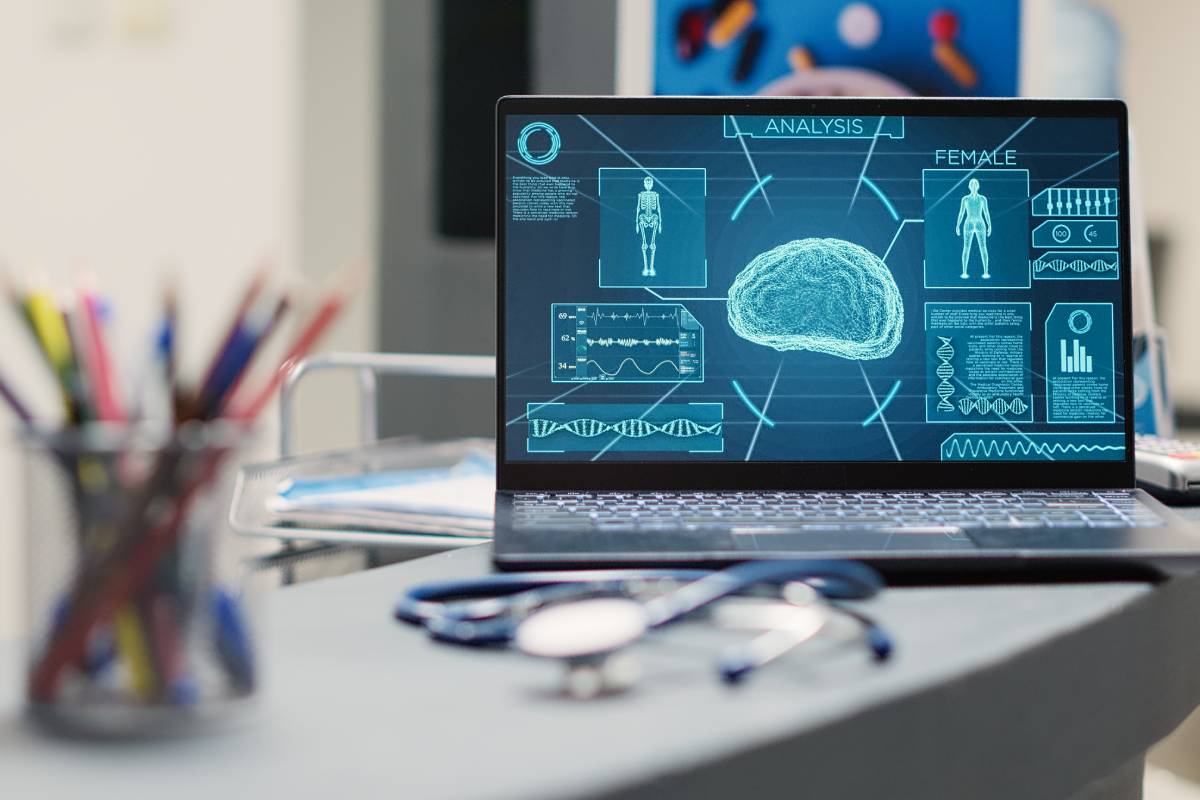Mental health is a vital part of overall well-being, yet many people face challenges in accessing the support they need. Advances in technology, especially Artificial Intelligence (AI), are opening new doors for mental health care.
AI is transforming how we detect, manage, and treat mental health issues by making help more accessible, personalized, and timely.
However, while AI offers exciting possibilities, it also raises important questions about privacy, empathy, and effectiveness. This article explores the role of AI in mental health support, how it is used in therapy, and the potential drawbacks to consider for safe and effective use.
What is AI and How Does It Help in Mental Health?

Artificial Intelligence (AI) is technology that allows computers and machines to learn, think, and solve problems like humans.
In mental health care, AI helps by making support easier to find, improving how problems are detected, giving personalized care, and helping therapists work better with their patients.
Making Mental Health Support More Accessible
One big problem in mental health care is that many people cannot find or afford a therapist. Some live in areas with few mental health professionals, and others may feel embarrassed to ask for help.
AI can help by offering tools that are available anytime, anywhere. For example, AI-powered apps and chatbots can provide support and guidance whenever a person needs it. This helps people get help faster and in a private way.
Early Detection of Mental Health Issues
AI can analyze data such as speech patterns, facial expressions, social media posts, and even physical health data to find early signs of mental health problems.
Detecting issues like depression, anxiety, or stress early can lead to quicker and more effective treatment. This means AI can help people before their condition becomes serious.
Personalized Care Tailored to You
Everyone’s mental health journey is different. AI can learn from how a person responds to certain therapies or exercises and adjust the support it offers.
For example, an AI app might notice if a user is feeling worse and suggest different coping methods or notify a human therapist. This personalization helps people get the care that fits their needs.
Helping Therapists with Data and Insights
Therapists often have a lot of information to manage, like patient histories, session notes, and progress reports. AI can help organize this data and highlight important patterns or changes in a patient’s condition.
This support allows therapists to make better decisions and focus on what matters most during therapy sessions, which in turn boosts the confidence of both therapist and patient in the treatment process.
How is AI Used in Therapy?

AI is being used in many ways to improve mental health care. Some tools work directly with people, while others assist professionals.
AI Chatbots and Virtual Therapists
AI chatbots like Woebot, Wysa, and Tess use natural language processing to have conversations with users. These chatbots can teach therapy techniques such as Cognitive Behavioral Therapy (CBT), help track moods, and provide advice.
They are available 24/7, which means people can get help any time they feel stressed or anxious. Chatbots also provide a private space for those who may feel uncomfortable talking to someone face-to-face.
Online Therapy Platforms with AI Features
Many online therapy platforms include AI features to help both therapists and patients. AI can help schedule appointments, transcribe sessions, and even analyze speech or emotional cues during therapy. This helps therapists understand their patients better and deliver more effective treatment.
Virtual Reality (VR) Therapy
Virtual reality combined with AI creates immersive environments that help treat mental health problems like phobias, PTSD, and anxiety.
For example, a person afraid of heights can gradually experience heights in a virtual world. AI adjusts the experience based on how the person reacts, making therapy safer and more effective.
Real-Time Monitoring with Wearables and Apps
Wearable devices like smartwatches and fitness trackers collect data on sleep, heart rate, and activity levels.
AI analyzes this data to monitor mental health and detect signs of stress or depression. If warning signs appear, AI can alert the user or their healthcare provider, allowing for early intervention.
Automated Assessments and Screening
AI can quickly ask questions and evaluate answers to help assess mental health status. This speeds up the process of identifying issues and helps therapists focus on treatment rather than lengthy intake sessions.
What Are the Disadvantages of AI in Mental Health?

Even though AI brings many benefits, it also has limitations and risks that must be understood.
Lack of Genuine Human Empathy
AI can simulate empathy by using programmed responses, but it does not truly understand or feel emotions. In mental health care, human connection and empathy are often crucial for healing. AI cannot fully replace the comfort and understanding provided by a human therapist.
Privacy and Security Concerns
Mental health information is very sensitive. AI tools collect a lot of personal data to provide help, which raises concerns about privacy. If this data is not well protected, it can be misused or leaked. People may hesitate to use AI tools if they fear their information is not safe.
Risk of Errors and Misdiagnosis
AI systems rely on the data they receive and the algorithms that process it. If the data is incomplete or biased, AI might give wrong advice or miss important signs. This can lead to incorrect diagnoses or treatments that do not help, or even harm, the user.
Over-Reliance on Technology
There is a risk that some people might rely too much on AI tools and delay seeking help from human professionals when it is really needed. AI should be seen as a supplement to, not a replacement for, professional care.
Bias and Inequality
If AI is trained mostly on data from certain populations, it might not work well for others. This can lead to unfair or less effective care for minority groups, people of different cultures, or those with unique needs. This bias can increase existing inequalities in mental health care.
Limited Ability to Handle Complex Cases
AI works best with common mental health conditions like anxiety or mild depression. It is not yet advanced enough to manage complex or severe disorders, such as schizophrenia or bipolar disorder, which require expert judgment and personalized treatment plans.
How Can We Use AI Safely in Mental Health?
To get the best results from AI in mental health, it is important to use it carefully and responsibly.
- Combine AI with Human Care: AI should support therapists, not replace them. Human judgment is essential for understanding complex emotions and situations.
- Protect Privacy: Strong data protection and clear privacy policies are necessary. Users should know how their data is used and kept safe.
- Ensure Fairness: AI systems must be trained on diverse data to serve everyone equally and avoid bias.
- Educate Users: People should understand what AI can and cannot do in mental health care. This helps set realistic expectations.
- Monitor and Update AI Tools: Regular checks and updates ensure AI systems remain accurate, safe, and effective.
Conclusion
AI is changing mental health support by making help easier to access, improving early detection, and personalizing care.
It offers new ways to support both individuals and therapists. However, AI cannot replace the human empathy and understanding that are vital in mental health treatment. There are also risks related to privacy, errors, bias, and over-reliance on technology.
The best approach is to use AI as a helpful tool alongside professional human care. With responsible use, AI can help improve mental health outcomes for many people around the world.




















